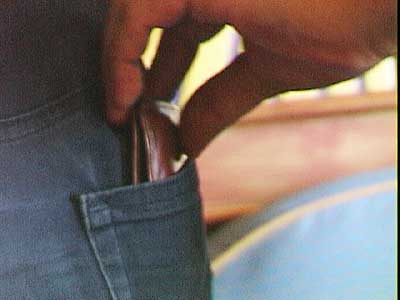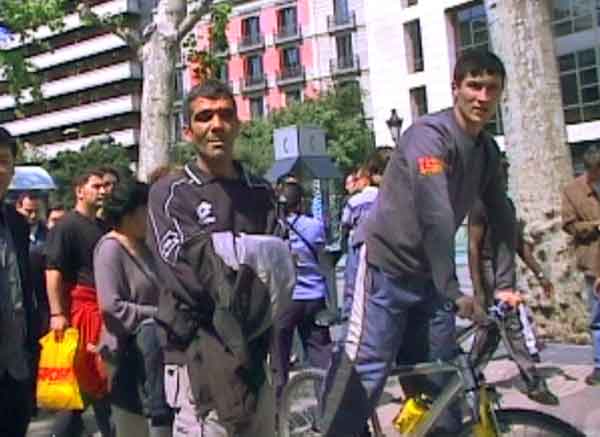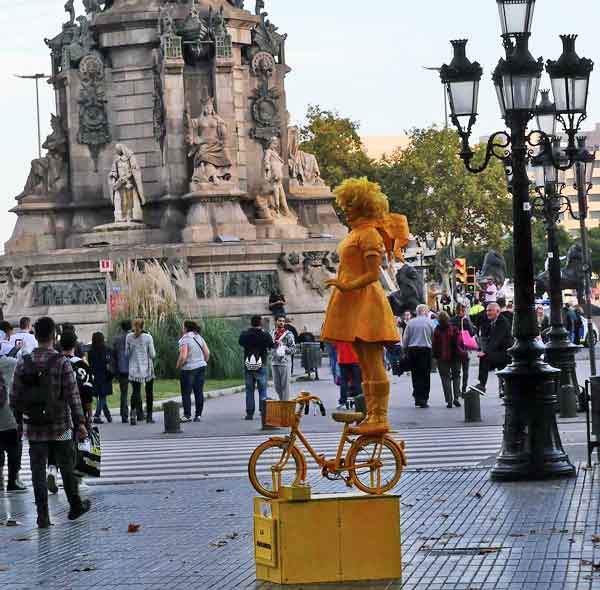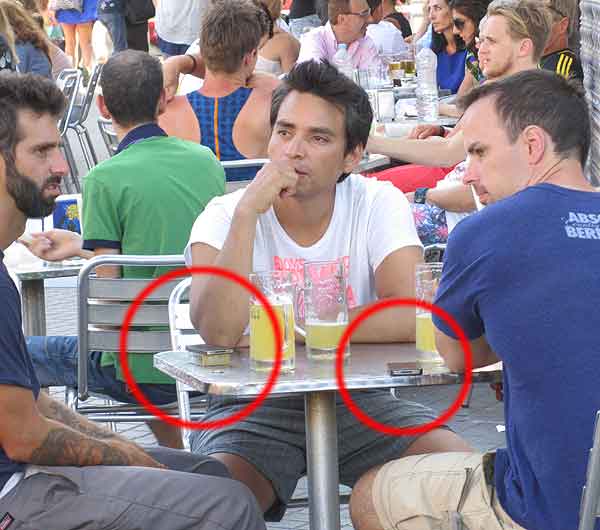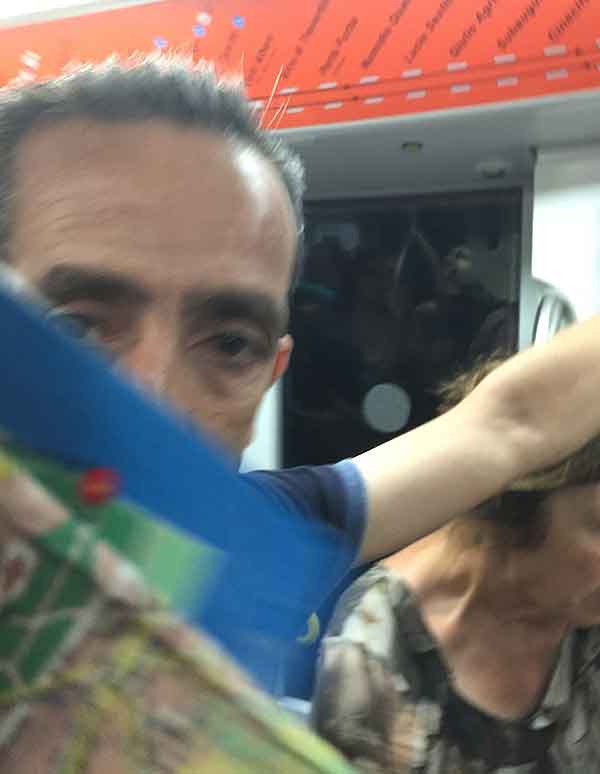Gang of 11 Pickpockets Stole Mobile Phones

Pickpockets Stole Mobile Phones
Who says pickpocketing is a petty crime?
A gang of 11 thieves was just sentenced in London. These pickpockets stole mobile phones on the London Tube and supposedly made about $15,000 a day. Police recovered £143,000 but credit the gang with making more than five million pounds through stealing phones. Let me do the math for you: that’s more than seven million dollars. Is that petty?
These thieves belong to a criminal network and systematically steal mobile phones from Tube passengers. It’s not a one-off crime. The British Transport Police Chief Superintendent Paul Brogden calls this an “industrial-scale criminal operation.” Can it possibly be considered petty?
More than a thousand mobile phones were seized with a large quantity of cash.
British Transport Police press release.
You can tell that term really irks me. The entire premise that pickpocketing is a petty crime irks me. How much evidence do we need?
You’d think I’d be used to this kind of report, after 22 years of pickpocket research.
These characters were all sentenced to two to three years; head thief Nawid Moshfiq got a little more time. What will they serve, half? Less? Then what? Will they go back to work in London? Maybe, or they’ll move on to another city where the police don’t know them.
A Pickpocket’s life story
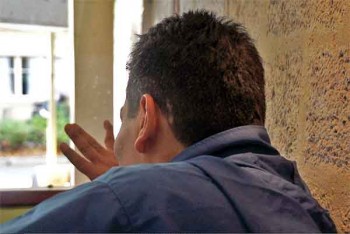
Bob and I interviewed “Pedro” in Paris a few months ago. We first saw him at a coffee bar inside Gare de Lyon, a huge train station. To us, it was clear that he was observing someone. We watched and waited a short distance away. Eventually Pedro abandoned his prey, but we were certain enough of his profession. Bob pounced on him as he was leaving the station, chatting him up.
Surprisingly, Pedro spoke good English. For 20 minutes out in the streets, Bob stuck to him like glue trying to convince him to talk to us. I tailed the two of them, first from a distance, then joining up. Unable to get rid of us, Pedro nervously asked for our IDs.
“Maybe you’re a cop,” he said to Bob.
“But I don’t look like a cop.”
“Nobody looks like a cop. Maybe you’re somebody that works with a cop.” Pedro fake-laughed. ”What do you want,” he repeated. And, giving up on denials: “How did you find me?”
“I’ve followed you for an hour,” Bob said, clearly shocking and confusing Pedro. “Talk to me. You’ll enjoy it!”
“Okay, we’ll talk, and I’m going to tell you the truth. You grow in this job. You start to feel who sees you, who’s watching. That’s why I’m surprised you followed me.”
“What do you want most out of life, other than money?” Bob asked as Pedro led us to a nearby brasserie.
“Education for my child in Peru.”
We settled into the booth with the least noise and best light. Pedro asked the staff to lower the music volume. Bob ordered lunch for himself. Pedro ordered orange juice. Bob and I quickly set up an array of video cameras to film Pedro, with his permission, only from the back. Then we got started.
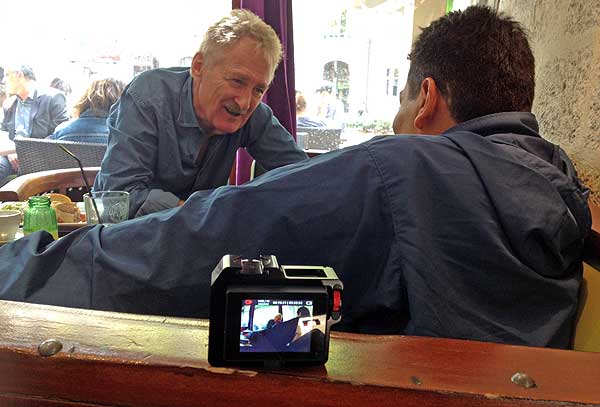
A pickpocket’s story
Call me Pedro. I’ve never used drugs. No one else in my family does this job. I have a daughter—we talk on the phone. She doesn’t know my work. I’m nervous when I work, all the time. But you have to control it.
In France, the first time you’re arrested, you probably won’t go to jail. The second time, maybe. The third time, you will go, maybe for three months. It depends: if you work alone, it’s not too bad. If you are working with three or four, it’s a gang and you go to jail for longer, maybe one year.
The amount of money I make varies. It depends on many factors. The place is very important. If you want to make money, you have to go to the big hotels, the five-stars. You use psychology, so you’re not suspected. You must be well-dressed. If you look like a good man, the person working the doors doesn’t keep you out. You are a good man! You have to feel like a good man to avoid security.
The real money is in the airports, the train stations, the big hotels, the nice hotels, the 5-stars… that’s my work. Sometimes I go on trains while they’re in the station, waiting for someone to put a bag down. But only before the train leaves. I don’t ride on the train.
Wait, someone’s calling me—it’s my wife.
[Pedro, smiling, speaks Spanish, describes us to the person on the phone.]
I was in Gare de Lyon today because I was following somebody. I might follow someone 20 minutes, one hour, if I’m working by myself.

When judging a victim, I look at their baggage and their shoes. But good shoes alone are not enough. Sometimes people have a lot of cash because they don’t pay tax. The black people, the Chinese, the Arabian people.
I might first see them when I work at the airport. Then I follow them until the right moment. In the hotel it’s easier, because they put everything on the floor.
I first saw the man I was following today in the station. This month is vacation for people. They don’t put cash in the bank, they keep it, they don’t pay tax, they don’t use credit cards. I wanted to take his bag. He put it on the floor and went to buy a coffee. But a lady came near and there were a lot of people, so it didn’t work.
In Paris… in a week… it depends. I can make 10,000 euros, 5,000. I don’t think that’s a lot. In another week, I might make less. It’s luck.
I don’t use the credit cards. I’m looking for cash. Or maybe sometimes there’s a nice watch in the bag. I don’t use credit cards because I don’t have the PIN. For me, if I don’t have the PIN, I throw it out. Sometimes I put all the credit cards and ID in the post office box.
I was arrested last week. Maybe because I was working with other people. Maybe the police followed me. So now, I’m working by myself.
When I need partners, I go to the South American restaurants and I find them. I say please, give me a hand.
Yeah, arrested last week. I had to talk nice to the judge. She asked me, do you want to say something? I explained that I’m new in this country and it’s my first time. She believed me. She gave me a chance, said I can go. But I have to come back another day. A good judge will give you one chance because you have no precedent. She gave me 30 seconds, one minute to speak. I said I’m sorry, it’s my first time, I’m confused, please, I want one more chance. So I have to go back in one month. Then I will say the truth: yes, I took it, because I was confused. And I’ll say: forgive me. She’s going to ask me if I have a job and I’m going to say I’m working sometimes, I don’t have residency, but I’m working.
I was nervous in front of the judge because I could go to prison. But I’m not; and my partners also went free. But now I work alone.
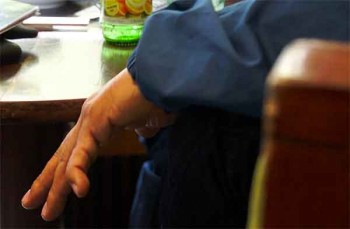
I want to go back to my country. I’ve been to Spain, to Italy…. I hear the police in Barcelona are easy, and they’re harder here in Paris.
I can tell you about the police. The police here are smart, more professional. In Spain, they don’t do a good job. They don’t care. In Madrid, sometimes they say you have to pay 500, 300 euros, and you pay it, and you continue, and you pay and you continue. The life is good in Spain because it’s cheap, the country is cheap to live.
I’ve been to Copenhagen, Oslo, and Stockholm. I was in Stockholm for only two days a lot of years ago. I took big money, and then I took the train and, pssst! I left. Only two days there.
![]()
How pickpockets pick victims
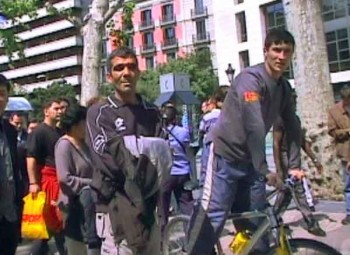
Picking before picking
Some pickpockets, Angelo for example, rifle full speed through as many pockets and purses as possible in a tight crowd. That’s his M.O. Others, like Kharem in Barcelona, look for a good bet before taking chances. Kharem wanted to show us his talent. We had to hold him back.
Barcelona pickpocket Kharem guided us on a thief’s tour of La Rambla.
“Just point and talk,” Bob instructed him.
But he did more than that. Brazen and fearless, he actually tapped on men’s pockets as we fast-walked through the crowd. No one seemed to notice. Nobody gave him a second glance. Kharem, the professional thief, slipped in and out of strangers’ personal spheres like a gnat through a window screen.
How pickpockets pick victims
“Most important is to figure out where the money is. Pants, jacket, waist pouch, backpack. That man has a fat wallet in his jacket pocket,” the pickpocket said, while the would-be victim was still several yards away. “See how his jacket is hanging unevenly.” He swept his thumbtip across his forehead in that odd gesture of his.
“And this man,” Kharem touched the thigh of a stranger. “He has loose cash. Very good. Very easy.”
Read one of our interviews with Kharem, and about that thumbtip thing.
Read how Kharem steals at the airport.
Read how we first met Angelo in 2004.
Read about Angelo-the-family-celebrity in 2014.
See Angelo in the National Geographic documentary Pickpocket King.
Excerpt from Travel Advisory: How to Avoid Thefts, Cons, and Street Scams
Chapter Five: Rip-Offs: Introducing… The Opportunist
![]()
Barcelona pickpocket scene today
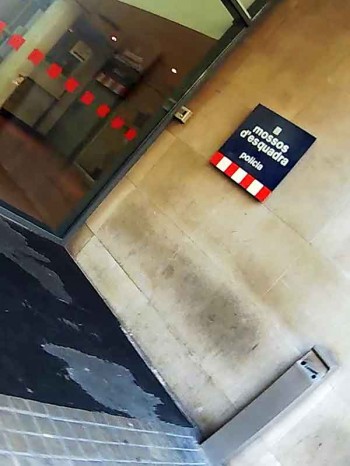
In my previous post, I offered seven simple rules to save yourself from pickpockets, inspired by my research into the Barcelona pickpocket scene today. Although they are presented with Barcelona in mind, the rules are good practice for most travel to areas unfamiliar to you, or when visiting areas known for pickpocket action.
You can avoid almost all of the most common pickpocketing methods if you follow those seven rules. Remember, the thieves read you and go for the least aware. They’ll head for the easiest opportunities. Don’t make yourself easy picking. It’s easy to defeat these pickpockets. The locals do.
In late October 2015, I spent several days updating our knowledge of the Barcelona pickpocket scene today. As I recently noted, our research is tedious and methodical. Here, I will present a few key findings from my research.
Barcelona pickpocket scene today
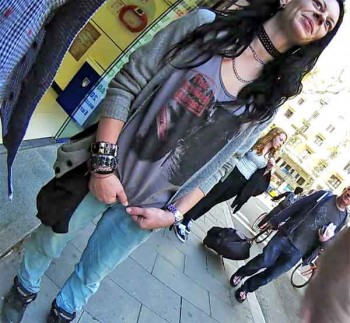
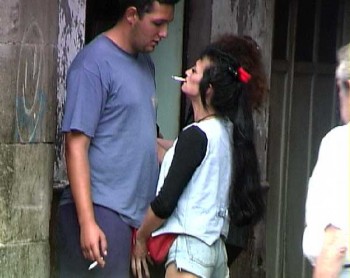
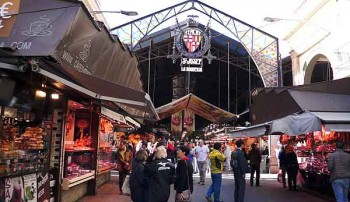
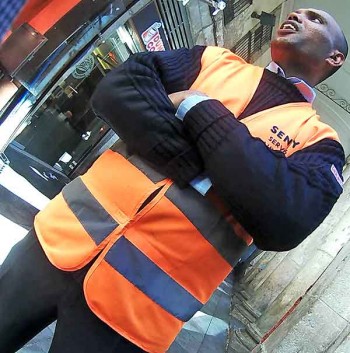
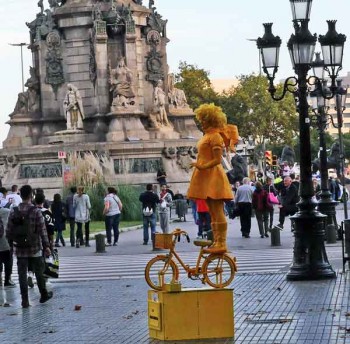
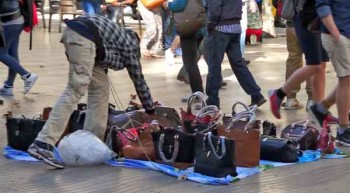
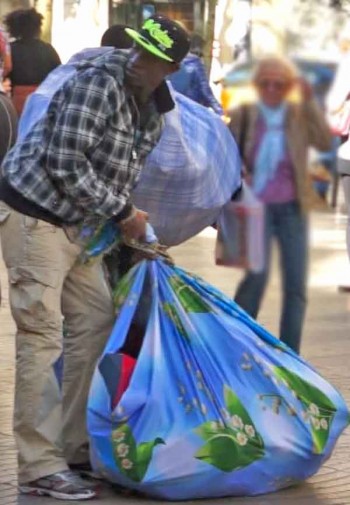
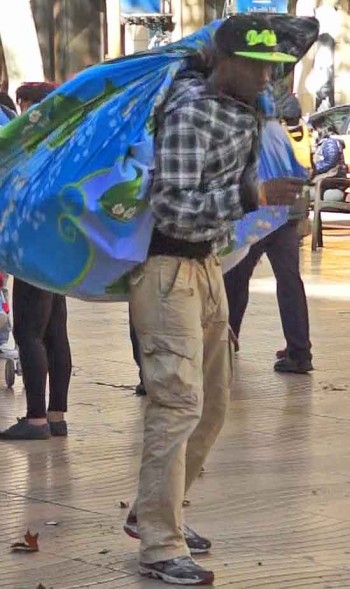
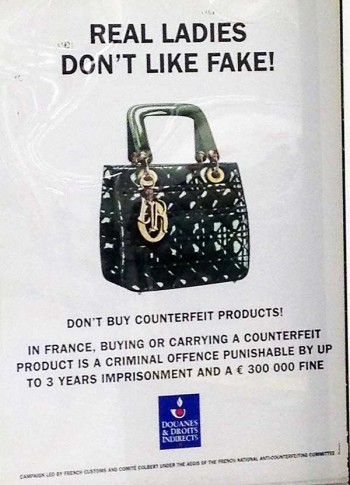
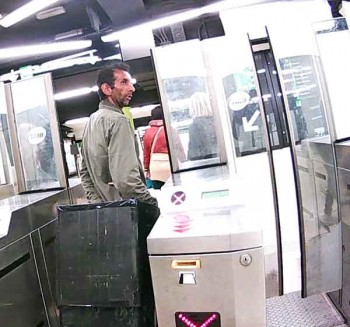
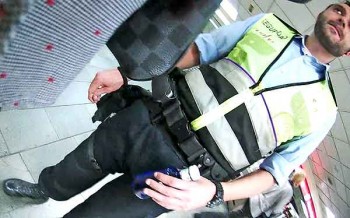
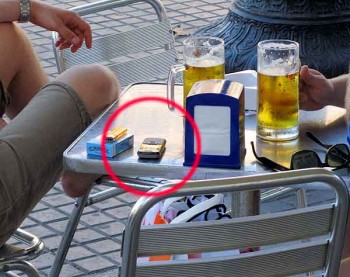
Police intelligence
I had several conversations with the local police. This is always tricky in Barcelona. Language barriers, rules from above to be tight-lipped, and to what extent they even know the average daily incident rate. We know that the real number of thefts is at least three times higher than the official one, since only one in three (at best) will bother to go to a police station and file an official report. The (vast) majority of victims chalk it up to a bad experience or a good lesson. C’est la vie.
Theft numbers are slightly down compared to years past. This is something I can confirm from chats I had with many hotel front office staff, restaurant managers, and people who work in areas where we’ve seen plenty of pickpocket action in the past. What my police friends could not explain was the reason for the downturn. It appears that the number of plainclothes (undercover) officers out in the field is the same as before. One good guess is that the majority of tourists now know before they arrive to be alert. Word is out. People are therefore more cautious.
Sexy pickpockets
But there was also some negative news. I was told that there are 50-100 female prostitutes operating in Barcelona who are more pickpocket than partner to lonely men. I thought this development was a bit peculiar, but I can see how the majority of these victims would not rush to the nearest police station to report a robbery. With this little nugget I began my own research. No, I didn’t hire a pro to get the goods (on camera), but I did strike up conversations with women who would know, including a few who did proposition me in the evening on La Rambla. One told me: “A third of the girls are simply doing tricks, and a third turn tricks and do pickpocketing. The final third are ladyboys who do only pickpocketing.”
There are a number of streets and regions in Barcelona where this action is rampant. And the women (and men) are extremely aggressive. Watch out!
Markets
My next stop was La Boquería, the hugely popular market just off La Rambla, full of fabulous small food stalls with exquisite Catalonian fruits, nuts, Iberian hams, chocolate, fresh seafood, flowers, and temptations galore for food lovers. The market is always crowded and always fun to stroll through at any time of the day.
And yes, there is pickpocketing there. But not as much as one would think. The market is concerned with security and its reputation and therefore hires guards. But not every entrance is controlled and the thieves know the weaknesses of the system and camera positions. Various stall owners or managers told me about the frequency of the thieves and when it is most likely to have an encounter with them: Friday or Saturday, paydays with many customers carrying cash, and especially crowded. My additional suspicion: maybe slightly less police presence on Saturday. Most thefts are from women’s handbags or from older people less alert to their surroundings and their pockets.
Ronaldinho technique
I also saw some of the classic pickpocketing moves late in the evening right on La Rambla, which otherwise is fairly safe since it’s constantly patrolled by officers in uniform (far more than in the past). Around 11 PM I saw the old Ronaldinho football stunt tried on a man in his twenties, maybe slightly tipsy, but the mark realized what was going on and just barely escaped the attack. In years past I would recognize various pickpocket teams crossing La Rambla late in the evening, but this time I saw no evidence of these punks. The bar scene is where one has to be most vigilant nowadays in Barcelona, and when taking the underground Metro.
The bottom of La Rambla still has the living statue performers, but only on the first two hundred meters or so. There was no evidence of the “three-shell gamers” who have otherwise infested La Rambla. Clearly an improvement and a clean-up process. The crowds that always form quickly around these con men are ripe pickings for the pickpockets.
Counterfeit-sellers
In their place Barcelona and especially La Rambla has been invaded by replica hustlers, small teams of men from West Africa who sell counterfeit handbags, fake brand name clothes and sport shoes, laid out on sheets spread on the ground. Of course all of Europe is plagued with this phenomenon, and wonders how to deal with it. It is illegal. If one approaches this from an elitist viewpoint it is trashy, cheap, and blocks pedestrian passage on otherwise nice streets. From a different angle, one can say these immigrants are trying to survive with a trade and it seems that buyers are eager and willing to find bargains on name brand luxury goods, whether legitimate or copy.
However it is illegal and in some countries, foremost among them France, authorities take a very serious stance on anyone buying or possessing counterfeit products. And so the hustle continues—a cat and mouse game in which the police sweep down on the culprits and the hustlers pull strings attached to the corners of their display sheets, instantly morphing the spread into a huge swag bag containing all their contraband, slung on their backs as they dash off. These gangs have controllers or spotters who alert them that the police are approaching, just as the three-shell-game hustlers also have spotters looking out for uniformed or undercover police officers.
The replica game is huge business all over the world, but a very difficult trade to block or efficiently remove. Some locales have enormous illegal black-market replica industries; for example Italy (Naples), Turkey) (Kusadasi & Istanbul, Malaysia (Johor Bahru), Thailand (Bangkok), Vietnam and of course the major cities in China. It is especially difficult to prosecute—what really is a replica, and what is not?
Metro
I then took a few trips on the local Metro from Plaza Catalonia and witnessed first hand a few female pickpockets. They seemed to recognize me after a while, probably from the film Pickpocket King which now must have been screened by every practicing pickpocket in Europe. They did not recognize me instantly; how could they? The film is now two years old and I was doing my rounds alone in Barcelona, not accompanied by Bambi. When they left the compartment where I stood their heads did their usual tilting down, and turning while scrutinizing a male mark as he entered the Metro train. They simply could not turn off their modus operandi, looking for the next victim, and obviously tabulating their chances of going into the man’s pocket. Both females showed all the characteristic behavior, including giving me the finger once the doors to the train closed and they were on the outside. Yes, taunting me, and giving me a message: “we’re on to you, and we know what you’re up to.”
Mobile phone theft
A continuing trend, despite of Apple’s security features and the ability to block future use, is Apple-picking, the slang term for stealing mobile phones. This has grown to be a serious issue all over the world.
Smart phones, and of course especially the coveted iPhones, are a prime target for the pickpockets roaming the streets of Barcelona. Mild temperatures make outdoor restaurants popular nearly year-round and tourists at these venues let their guards down, allowing their expensive iPhones to sit in full view on tables within easy reach for any grab-and-run thief. Many factors make phones easy to steal; they’re slim; they’re usually at the top of women’s handbags for quick access, or in outside jacket pockets where a thief can easily snag them. While a wallet may be secured in a hip pocket with a button, a multi-functioning smart phone is kept easily accessible. All these little details make for uncomplicated extraction even by low-end pickpockets.
And the “high-end pickpockets” who specialize in mobile phones are as good as magicians.
Another way to gauge the pickpocketing levels in a city is to learn the number of iPhones stolen daily. It’s fairly easy to acquire this info by simply chatting with management at the local Apple store. When I visited Barcelona’s Apple store, the daytime manager told me that the average was around 80 new iPhones sold during his eight-hour shift, and of these roughly 30 were replacements of just-stolen phones. Considering those phones not immediately replaced, and additional phones sold on the swing shift, that translates to a guesstimate of at least 50 phones stolen every day in Barcelona (in late autumn). This fits in very nicely with other Barcelona pickpocket statistics and with other high-profile European capitals like London, Rome, and Paris.
Obviously these numbers are not precise. They’re estimates and averages but, as a yardstick for pickpocketing activity, quite useful. This is corroborated by the police, who state that the ratio of victims reporting the loss of phones to wallet is three to one—for every wallet stolen, three phones are grabbed.
When you consider the value of the hardware itself, the data in it (passwords and credit card numbers, addresses, access codes, etc), and the ease of grabbing it, this makes sense. In addition, victims often believe it is a futile waste of time to report a stolen wallet, which is unlikely to ever be found with its contents, vs. an expensive and identifiable mobile phone (with an IMEI or, international mobile equipment identity number), which is seen (hoped!) to have a greater likelihood of being traced and returned. Victims also may need a police report for insurance.
Conclusion
My trip to Barcelona was tied to a security lecture for regular travelers, not security professionals. I was eager to know if some of these visitors had already experienced incidents on their first days in Barcelona. I will not identify the group by name or the actual number of hearsay incidents, other than that the ratio of incidents to total number of visitors was better than in years past. In the past I have noticed an incident rate of roughly ten victims per one thousand visitors, now the numbers were significantly fewer.
In conclusion, although this is not a scientific report, I can say with confidence that the Barcelona pickpocket scene today has improved somewhat in terms of safety. Yes, there are still plenty of pickpockets operating in this charming city, but it seems not much worse than most other large cities in Europe with important attractions. What continues to make Barcelona attractive to the thieves is of course the sheer number of tourists, cheap living, and a weak legal system. The most they have to fear is a fine, rather than a lengthy prison sentence.
I reiterate the importance and success of following my seven simple rules to save yourself from pickpockets.
Seven simple rules to save yourself from pickpockets
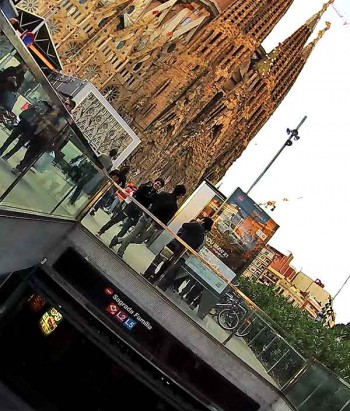
In my previous post, I discussed the tedious and methodical research we do before slamming a city for high numbers in pickpocketing, bag snatching, and/or mugging. Barcelona, sad to say, is one of those. We renewed our Barcelona research in late October 2015 and here offer seven simple rules to save yourself from pickpockets. Although these are presented with Barcelona in mind, they are good practice for most travel to areas unfamiliar to you, or when visiting areas known for pickpocket action.
Case in point: Barcelona. Its reputation for robbery has deteriorated steadily over the years, and rightly so. Television news programs and sensational newspaper stories featured every conceivable petty crime perpetrated on tourists and business visitors. Some not so petty, with women being dragged to the ground and breaking hips and arms during bag snatches. On the other hand, Barcelona is one of the most charming and pleasant destinations in the world, equally loved by young and old. Bambi and I love Barcelona, let’s make that clear, so it’s sad to have to report that crime is still very high compared to other European cities. But worst? No, I wouldn’t go that far.
One can avoid becoming a victim when visiting Barcelona and it’s not that complicated or challenging. No need for complete lifestyle changes—just a few simple precautionary steps, and you’ll increase the likelihood of a safe visit by many, many multiples.
Seven simple rules to save yourself from pickpockets
1. Pouches. Wear a small travel security pouch under your clothing (either under your shirt, or hanging by a loop attached your belt and inside your pants). This is especially important if you intend to use the local metro system during rush hours.
2. Cash. Don’t carry much cash (you decide the meaning of much)—but remember most of the small cafes and restaurants do not accept credit cards (strange but true, especially in the markets).
3. Passport. Do not walk around with your passport in a pocket. Make a color copy of the first page and carry the copy (and it’s good to have when you fill in tax refund forms, if you live outside the EU).
4. Cynicism. Don’t trust anyone who approaches in order to assist you with documents, maps, cleaning off some gooey stuff that seems to have dropped on your clothes, or even police who request to inspect your currency (they’re “pseudo cops,” fakes). Yes, it means being cynical, but also civil. The majority of people you’ll come into contact with want you to leave Barcelona thinking positively about their city. If you need assistance you’ll ask a local, who will almost certainly be kind and helpful. If you are approached by a good samaritan-type unbidden, stir up that cynicism and use caution.
5. Handbags. Don’t carry elegant handbags on thin straps which can be easily grabbed and broken, especially on the narrow streets off La Rambla. Never hang your purse or bag on the back of a chair in a public place. Neither should you place it on the floor in a restaurant. Out of sight, out of control.
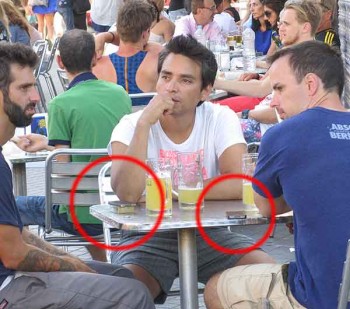
6. Mobile phones. Your mobile phone is very attractive to a pickpocket. The thieves have many techniques specifically designed to relieve you of your phone. Some of these techniques are simple, yet work effectively even on sophisticated travelers who consider themselves savvy.
7. Research. Finally, you can increase or decrease the threat factor by adjusting your behavior and your perception of the surroundings. Travel is always unpredictable, leading to delight at one moment, or knocking you off balance at another. You must be prepared, and take responsibility for your own safety and security. Research these issues before embarking on your trip. For example, search online for the most common scams and tricks that may be played on you when hitting new ground. This advice is important for every new travel destination.
You can avoid almost all of the most common pickpocketing methods and save yourself from pickpockets if you follow the seven rules above. Remember, the thieves read you and go for the least aware. They’ll head for the easiest opportunities. Don’t make yourself easy picking. It’s easy to defeat these pickpockets. The locals do.
Stay tuned. In my next post, Barcelona Pickpocket Scene Today, I will present my findings from my October 2015 research trip to Barcelona.
Worst cities for pickpocketing?
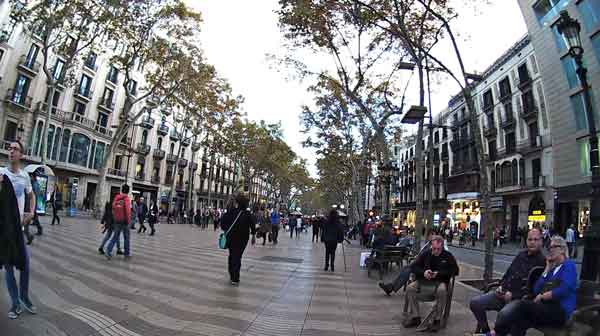
We are often asked which are the worst cities for pickpocketing. It always seems the correspondent or the journalist hopes that we will confirm a preconceived notion or rumored list of the ten worst cities where crime runs rampant. It makes for good sensational journalism, I guess, or easy-to-grasp stories and headlines. But we hate to support poorly researched lists or to disparage a particular city just because petty crime may be high in certain areas. We prefer balanced evaluations and a deeper understanding of the threat to an informed traveler.
Also, we’d hate to see a traveler dissuaded from visiting a city in reaction to one of these silly articles. The fact is, a little precaution and travel-savviness should be enough to defeat a distraction thief and stay many steps ahead of the bad guys. The key is information, which leads to an understanding of how the thieves think and act, and how they select their marks. It is always the uninformed who become the victims.
Harder to avoid are muggers and the grab-and-run thieves. They work on the principle of speed and are often brutal and vicious in their techniques. A pickpocket depends on psychological manipulation and distraction, from which you can defend yourself. But avoiding a mugger requires more planning, local research (think hotel lobby concierge), or simply staying away from certain districts. The time of day and location determine the threat factor.
Worst cities for pickpocketing
Is there any truth to those infamous lists of “the ten worst cities for pickpocketing”? That depends on what is meant by the word “worst.” Honest and accurate crime statistics are extremely hard to come by, and even the word “pickpocket” must be defined carefully. Police commissioners, local politicians, tourist ministry officials and the hotel industry in general are not fond of releasing statistics which cast a dubious sheen on their profession. It is also difficult to compare a small city like Naples to a much larger city like Barcelona, or city center districts frequented by tourists, versus an entire city and all its transportation system, including neighboring airports.
What is certain beyond any shadow of a doubt is that Paris, Rome, and Barcelona rank as high risk cities in any pickpocket list; maybe also London. So how do we measure this and how do we find the latest trends? There is only one way really, and that is feet on the ground. We revisit cities on a regular basis, usually annually, and do diligent research.
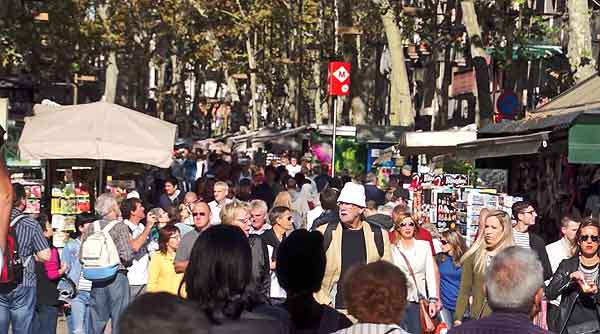
To get to the real truth we immerse ourselves for a at least a few days with law enforcement, hotel security staff, and local security experts at the cities’ popular attractions. Whenever possible, we also speak with the thieves themselves. We speak with victims on location, and those who post comments on this blog. The combined research gives us a pretty good idea of what is changing for the better or for the worst from one year to another. Tedious work, yes, but also enlightening and interesting to see how cities tackle petty crime—with aggressive new techniques or, worse, indirectly blaming the tourists themselves for not being more careful or observant. Shifting the blame!
Case in point: Barcelona. Its reputation for robbery has deteriorated steadily over the years, and rightly so. Television news programs and sensational newspaper stories featured every conceivable petty crime perpetrated on tourists and business visitors. Some not so petty, with women being dragged to the ground and breaking hips and arms during bag snatches. On the other hand, Barcelona is one of the most charming and pleasant destinations in the world, equally loved by young and old. Bambi and I love Barcelona, let’s make that clear, so it’s sad to have to report that crime is still very high compared to other European cities. But worst? No, I wouldn’t go that far.
One can avoid becoming a victim when visiting Barcelona and it’s not that complicated or challenging. No need for complete lifestyle changes—just a few simple precautionary steps, and you’ll increase the likelihood of a safe visit by many, many multiples.
Stay tuned. In my next post, I will present:
Seven simple rules to save yourself from pickpockets
And after that: Barcelona Pickpocket Scene Today.
Theft on a train
Christine boarded a train in Cologne, Germany, to travel to Frankfurt. Approaching her first class seat, she saw a man in the seat opposite hers with his head on his arms on the table, probably dozing.
Next, she noticed two young men walking in the aisle near her seat. Unconsciously, her mind flashed about the first guy: “What a handsome face.” Then: “Strange that he carries his stuff in a plastic grocery bag.” Then: “Yet he’s in the first class carriage.” Then, about the guy directly behind him: “Is that a USB cord dangling from the phone in his hand?”
All this before she even sat down.
Immediately then, her sleeping seatmate jerked awake and lunged for the handsome-faced guy.
The guy had grabbed the man’s phone, which had been plugged in, and the man had felt the cord pull away.
Theft on a train
Christine watched the two grapple and saw a beer bottle flailing wildly, beer spraying everywhere. She wondered if the beer bottle would become a weapon. She stood there, watching the men, not knowing if she should help physically or not, while the victim was screaming for the police. Seconds later, a pair of civil police officers jumped aboard and arrested the boy.
One officer handcuffed the boy and lead him off the train. The other settled in with the victim across the table from Christine. Christine was asked to be a witness, but she had to admit that she hadn’t seen the actual grab.
As the train pulled out of the station, the police officer took a statement from the victim, which is how Christine came to know certain details, for example, that the thief was from Morocco.
Christine did not know how the police managed to arrive within seconds, but I think I do. I believe the police had had an eye on the boy and had expected him to make a move like this. I believe they were trailing him (as Bob and I do when we’re thiefhunting) due to his behavior. Trains are favorite territory for thieves, and though some use diversion and strategy, many are simply of the grab-and-run variety. There is so much pickpocketing and bag-snatching on trains that many countries have dedicated train (or transport) police forces.
We, as passengers, simply need to practice safe stowage of our stuff to thwart the bulk of the theft. That means placing valuables in more protected places, and realizing that a train car is not a safe haven. Anyone can come aboard. Often, they don’t raise eyebrows as these young men did. Bad guys infiltrate our perceived refuges and have free rein, like a wolf in sheep’s clothes. Highly successful thieves look like lawyers, like businessmen, dressing the part, with polished shoes and handsome briefcases. Working with police as we do, we are privileged to see photos of many of these, but we are not allowed to post them.
The thief’s goal would have been to steal something and get off the train before it pulled out of the station, putting instant distance between him and his victim. Thieves are not rocket surgeons, however, and do not realize that their behavior highlights them in neon yellow to trained eyes.
Now here’s the irony: Christine is a television host. She was on her way to Rome to shoot a story on pickpockets, with us.
Nice beginning of her trip, eh?
Pickpocket foiled on Rome train
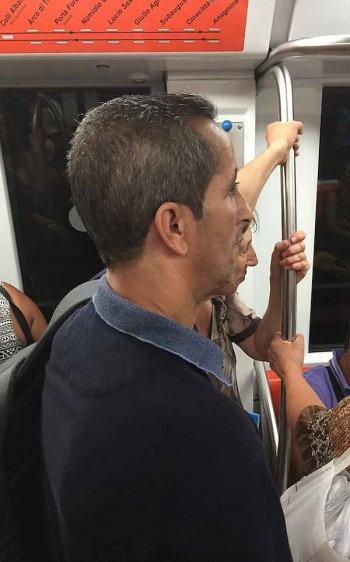
July 26th, 2015 was a typical hot summer day in Rome. My family and I decided to visit the Bhorgese Museum on the north end of the city. Having thoroughly enjoyed the gallery and garden, we made our way to Spagna metro stop to pick up the A line to back to the center of Rome.
This is when it got interesting. There was a throng of people waiting to get on the train. All of the warning signs were there that this was a pickpocketer’s dream. As we pushed through the doorway like some giant human amoeba, I recalled feeling a slight brush; a nudge, a hand, a map being pushed against me. Whatever it was, it made me instinctively put my hand on my iphone in my left pocket.
Pickpocket Foiled
Imagine my surprise to find someone else’s fingers firmly levitating my iphone. I turned to the left and pushed back against the mousey devil behind me and told him to keep his hand off my phone. Sure enough, I noticed he had been poking an old tourist map at my waist, attempting to conceal his bad intentions.
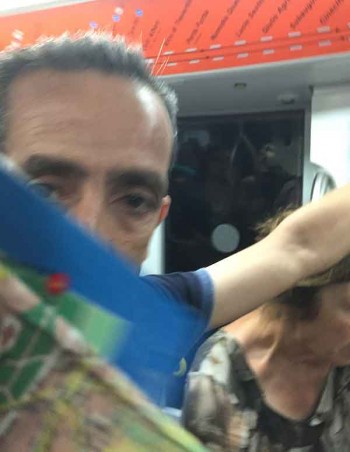
I felt a surge of adrenaline and indignation, as I loudly proclaimed our fellow passenger a pickpocket, to which, all turned and gazed upon him (awkward moment).
Still bothered by his trickery, I thought to myself, time for a close-up picture of my failed pickpocketer friend. This, of course, made him uncomfortable. I noticed that he attempted to cover his face with the map. Leaving no doubt about his mal intent, he rapidly exited the train at the next stop to a smattering of applause.
I felt vindicated and empowered—He had failed! He picked the wrong target. Though I looked the part of average tourist with my baseball cap on, I’m probably the worst person to try this foolishness with. You see, I have spent the last 25 years studying the subtle details of those molecular pickpockets, Viruses, which take over cells that they slip into. I’m used to analyzing every last detail about small things.
He couldn’t have known that he picked the wrong guy. But since he is just like the viruses that I study, I couldn’t help but have many questions about this fellow; How? Why? Does he feel any moral dilemma with his craft? I even felt a bit of a thrill after foiling my pickpocketer. No doubt, I enjoy this high-stakes game. I’m ready to troll for the next one when I’m in Rome again.
Dr. Virus
P.S. Love your website. Keep it up. If the Rome Police won’t do anything about it, at least we can expose the threat. I think the best thing to do is to take pictures of these people and post them online.
Deception in Thievery

Trust me…
The gentlemen thief of the strategist variety is a consummate con man. By design, he thwarts suspicion and earns his intended victim’s confidence by his dress and demeanor. He puts on respectability and trustworthiness as if they were a jacket and tie, then garnishes the look with manners and decorum, like cufflinks and a spit-shine. But his garments are mere costumes, uniforms donned for gainful occupation, flimsy facades contrived to trick us into allowing him access to our spheres.
How can one beware the wolf in sheep’s clothing? It’s our nature to trust first, suspect later; and it’s darn difficult to overcome our nature. We almost always give the benefit of the doubt, assume one is innocent until proven guilty. Especially in a foreign country—where we’re ignorant of the local customs—we hesitate to doubt a motive for fear of offending.
Cynicism is an unnatural state for a traveler who has come far to experience a new land and unfamiliar traditions. We arrive prepared to embrace our local hosts, however alien or exotic they seem to us. After all, it’s their country. We want to like them. Yet, we don’t know how to read these foreigners, even though they may seem just like us. We can’t always interpret their body language, their facial expressions, their gestures. Neither do we recognize their outsiders. We’re at a distinct disadvantage as tourists and travelers, due to our nature as much as our innocence. How then, can we be alert to that insidious impostor?
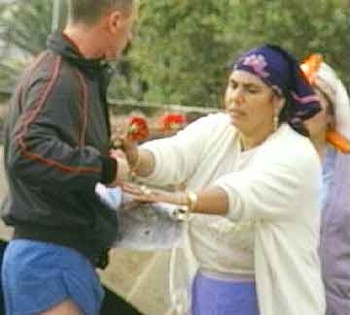
Bob Arno and I are loath to imply that strangers cannot be trusted; most can. Yet, for every crook and scoundrel we meet, for every victim’s story we hear, we feel ourselves harden. Our antennas get longer, our trust diminishes. We advise: protect your sphere. Don’t let a stranger penetrate your personal space. Suspect the unknown person who suddenly wants to be your friend—the stranger who wants your confidence.
The strategist pickpockets are clever. Unlike the opportunists who wait for a lucky chance, the strategists create their own opportunities, and make participants of their victims. You, the savvy traveler, will simply refuse to participate.
That requires the intentional cultivation of your under-developed kernel of cynicism, growing it until, at least, it is large enough and accessible enough to kick in when needed. That would be just when the deal-that’s-too-good-to-be-true finds you; the moment you are offered a free flower, and when approached by pseudo-cops (fake police), bucket bandits, and sandwich thieves (who do not steal sandwiches). “Look over there!” Ha-ha, got your goodies!

Deception in Thievery
Deceptive pickpockets and con artists are skilled in the art of social engineering. They develop (and clone) strategies to trick you into making your valuables available. They perform tiny plays, micro-choreographed from intricate scripts, in which you are a participant. Meet the smartphone thieves, magicians in their class. The whole act is over in an instant or two. There’s no applause, but if the thief has done well, he’s got something better. And then it’s “exit, stage left.”
Especially devious are those I call the pigeon poop perps. These thieves surreptitiously dirty their victims, empathetically point out the stain, then volunteer to clean it off. Unsurprisingly, they’re armed with a bottle of water and tissues—tools of their trade. As they clean them off, they clean them out, in one variation or another. And the victims? They allowed that stranger to touch them all over—brilliant!
There’s nothing like a thieving good samaritan to erode one’s faith in humanity.
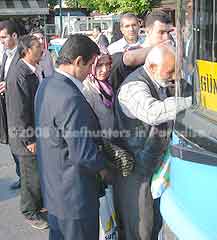
Birds and their excrement seem to figure frequently in the world of street thievery. While pigeon pooping is unrelated to pigeon dropping—a scam in which greed trumps logic over found money—both require a gull, someone easily tricked or cheated, a dupe, a person who is gullible. When we hear about people taken in pigeon drop scams, Bob and I wonder how anyone could be so naive. Yet these swindles proliferate relentlessly, constantly reinvented to suck in the greedy. Beware: someone, somewhere, has devised a pigeon drop just for you.
Con artists who practice the pigeon drop and the bait-and-switch and all the many variants of these scams are the epitome of their label. They are the ultimate confidence men, both seeking and pretending to offer the trust of a stranger. We’re in this together, they intimate. It may be wrong, but it’s you and me against the bad guys. Pavement wager gamers who run the three-shell game and three-card-monte rely on their shills to inspire confidence while they promise the chance of easy money. As the victims of these con artists count cash into the hands of their covert tricksters, they expect to receive value for money. They expect to get rich, get a killer deal, win big.
The moral of con artist story might be if it seems too good to be true, run! But greed drives the victims of these cons, and greed trumps reason. For the con men, that spells advantage: because a gull blinded by greed is a victim indeed.
Deception in thievery is an intentional act. It’s why you can’t spot a thief in a crowd. Picture a grandmother, a trendy teen, an older gentleman, an adorable child…. A pickpocket could be anyone. That good samaritan who wants to help you heave your bags onto the train, or sell you an iPad, or fix your flat tire—they’ve all got thievery on their minds.
Poor us—we’re pretty much trained to trust first, doubt later. We have a definite deficit in the cynicism department. And that’s no contest against the deceptive thieves.

